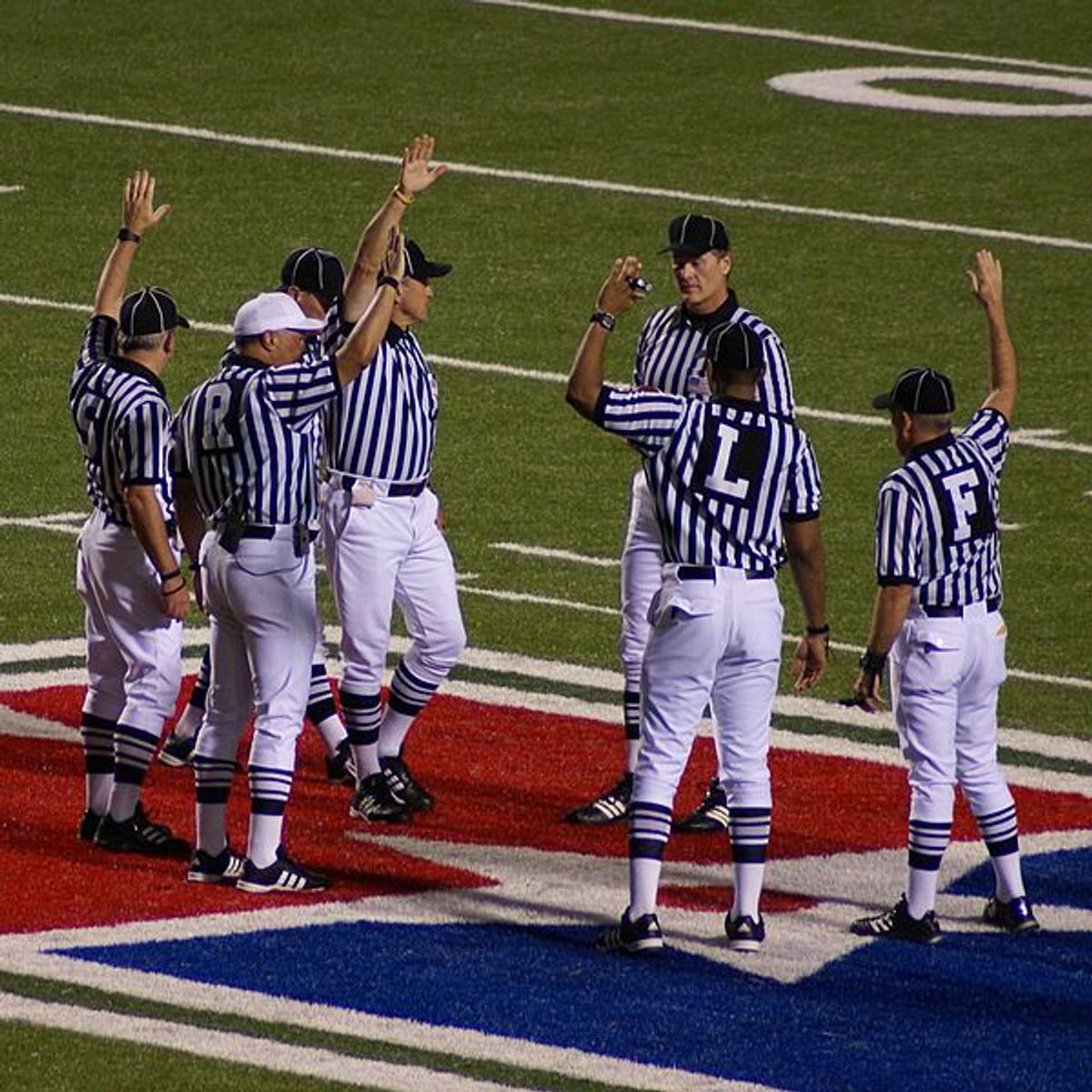The NFL union referees will return to the field Thursday after being locked out for more than three months and replaced by inexperienced stand-ins.
For football fans, it has been trying to watch the replacement refs' bumbling, which culminated Monday night with a game-changing decision in the Packers-Seahawks game, dubbed by one YouTube user "the worst call ever."
Non-fans have less reason to be jubilant, but the incident has nonetheless been a significant labor dispute, with lessons beyond the importance of non-biased, well-trained referees in dangerous, high-stakes sports.
As Alternet's Sarah Jaffe pointed out , the dispute highlighted the growing prevalence of lockouts, which are importantly different (in fact, the opposite) of strikes. A lockout is when managers decide to "shut workers out of their job in an attempt to force the union to concede … In the case of the NFL, the referees' jobs have been filled by less-qualified workers -- scabs, in the old union parlance."
Jaffe stresses that it is the NFL owners, not the replacement refs, who should be blamed for the lockout. She notes that while the number of strikes has decreased in the U.S. in recent decades, lockouts have "grown to a record rate," signaling an anti-union political climate, aided by high unemployment (making scabs readily available). As such, the NFL lockout has been illustrative of a bigger labor picture. It is noteworthy that even with football's high profile -- millions of fans screaming at every bad call -- billionaire owners could keep pro refs locked out for over three months.
Some commentators saw the lockout as a lesson in the importance of nationalization when owners refuse to meet workers' reasonable demands. Rudi Batzell wrote in Jacobin that since "football capitalists are destroying their industry, corrupting the game," the NFL should be nationalized, with teams following the community-owned model of the Green Bay Packers:
For the good of the game, to preserve a national treasure, it’s time for nationalization. After seizing the teams from the capitalists, the nation can turn the teams over to the stewardship of their communities, and give players, coaches, and refs the full compensation they deserve. Green Bay got screwed by the scabs on Monday Night Football, but their community-owned, non-profit example shows the way for the future of football.
Batzell noted that her point is not without precedent: President Truman temporarily nationalized the steel industry in 1954 "when owners refused to negotiate in good faith."
Following Monday night's disastrous replacement ref call, the league had little leverage to continue locking out the union refs and refusing their modest demands, primarily over pension funds. Writing earlier this week in Grantland, Bill Barnwell said that it was "time for the league to put its tail between its legs, apologize profusely, and ask the locked-out referees to come back under a deal of the NFLRA's [the referees' union] choosing."
Now that the lockout is over, a number of pundits continue to decry the owners' actions. Filip Bondy of the New York Daily News wrote on Thursday:
Was it worth the black eye? Of course not. Maybe if a salary cap were at stake, or perhaps a significant new stream of revenue, the NFL stance would have made some sense. But we’re talking a few million bucks in pension funds — pocket change for a $9 billion industry.



Shares